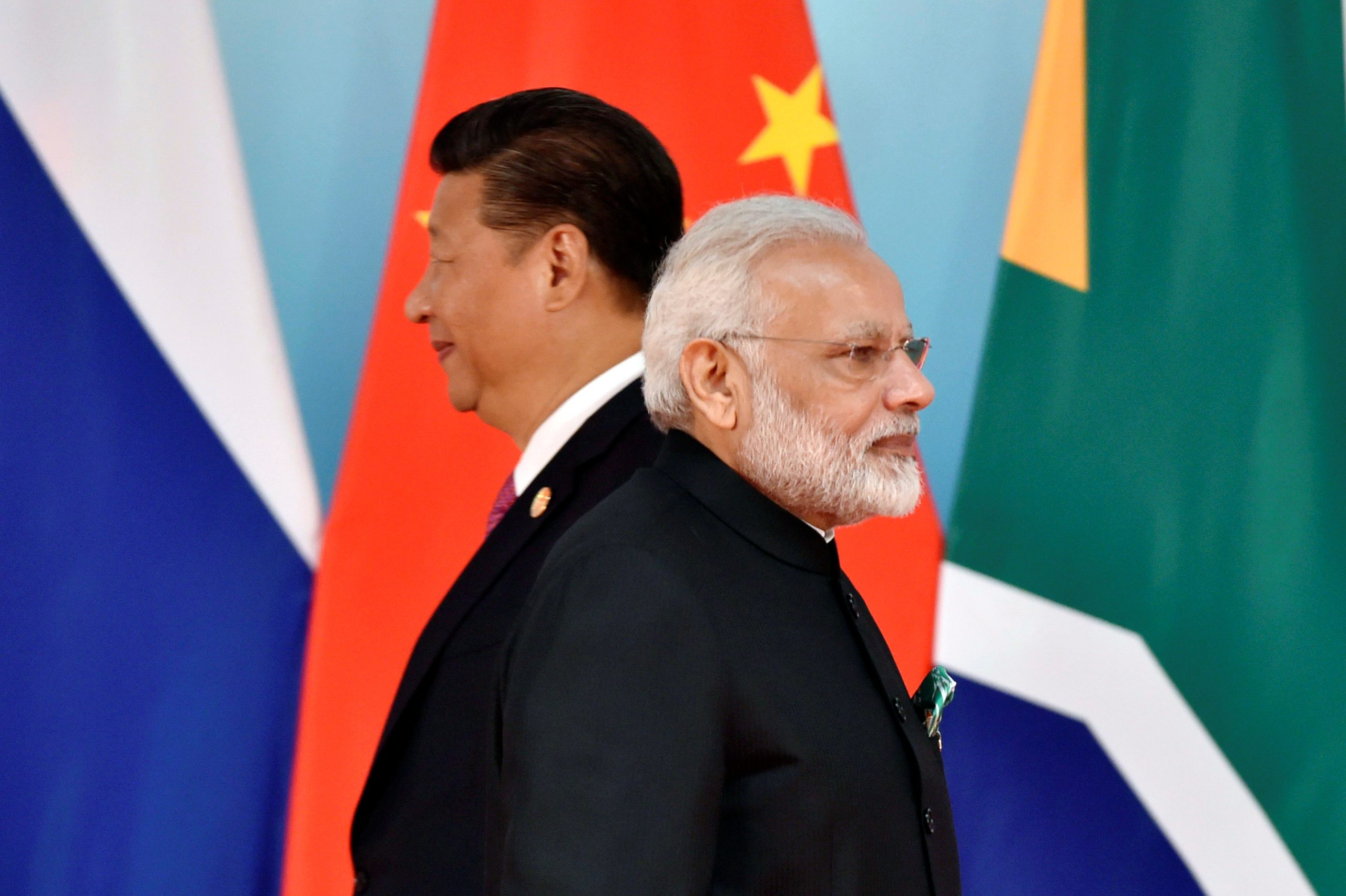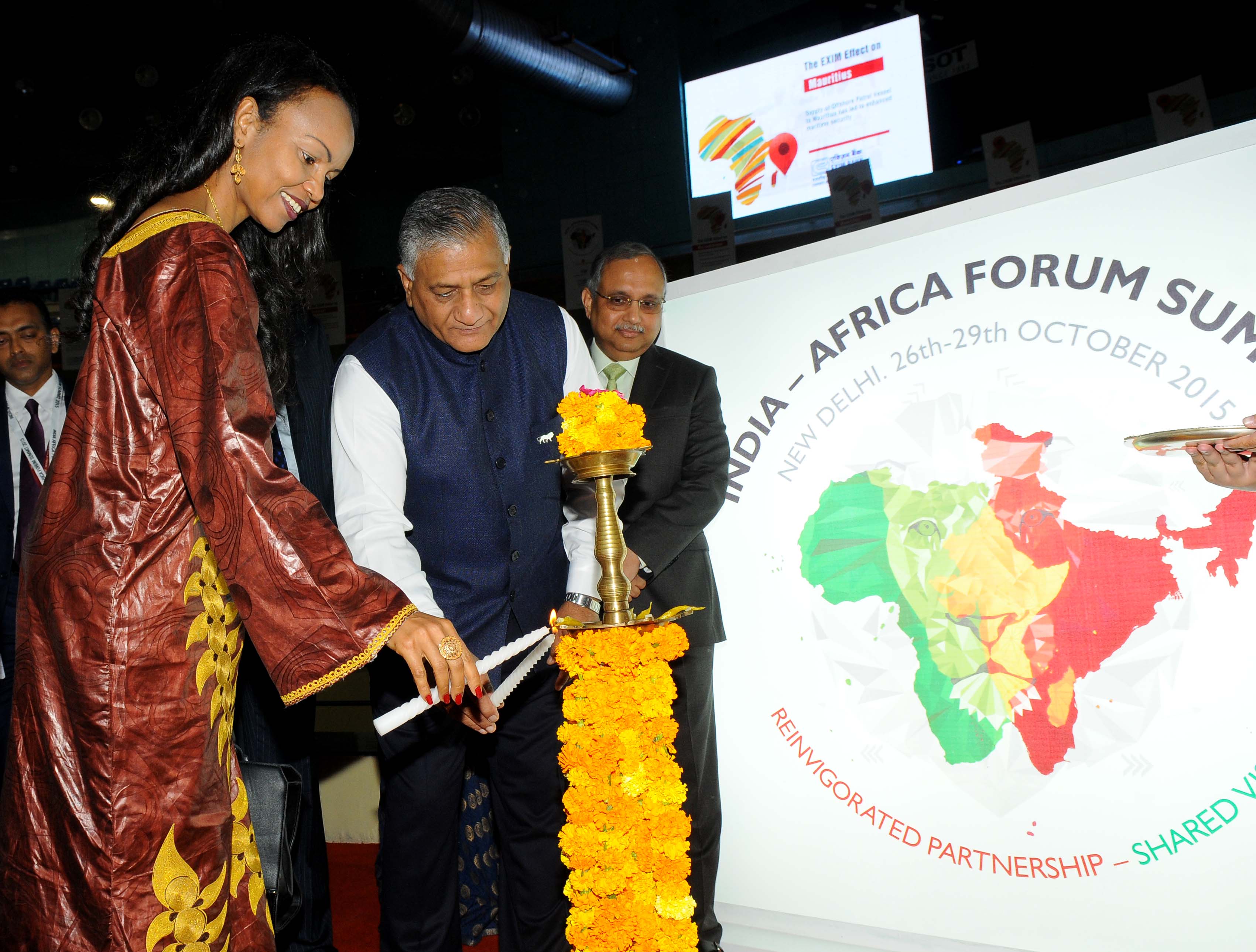Ambani’s Reliance Sets Sights On New Horizon, Africa’s Telecom Market, Plans To Develop 5G Infra; The Contrasting Role Of India And China In Africa

Asia’s richest man, Mukesh Ambani, is all set to expand his footprint and enter the African market with a new telecom venture to attract mobile broadband customers in a rapidly growing sector.
Radisys Corp., a subsidiary of Ambani-controlled Reliance Industries Ltd., will supply essential network infrastructure, applications, and smartphones for a Ghana-based company called Next-Gen InfraCo.
Harkirit Singh, the executive director of NGIC, shared this information ahead of the company’s official launch announcement on Monday in Mumbai, India’s financial hub.
NGIC plans to commence operations by the end of this year, offering 5G broadband services to mobile operators and internet service providers in Ghana.
The company’s strategic partners include Nokia Oyj, Indian outsourcing giant Tech Mahindra Ltd., and Microsoft Corp., which has been focusing more on the telecom sector following its acquisition of two cloud networking firms in 2020.
Eyeing Ghana
Ghana, a West African nation with a population exceeding 33 million, is currently served by three major operators – MTN Ghana, Vodafone Ghana, and the state-run AirtelTigo.
According to Singh, NGIC’s technological capabilities, strategic partnerships, and possession of Ghana’s sole 5G license will enable it to develop broadband services on a large scale, a task that would be financially burdensome for individual mobile carriers.
Singh also mentioned that two African telecom firms, Ascend Digital Solutions Ltd. and K-NET, hold a combined 55 per cent stake in the new company. At the same time, the Ghanaian government will own just under 10 per cent of NGIC, with the remaining shares held by local mobile operators and private investors. Singh, who is also the CEO of Ascend, provided these details.
NGIC has secured the exclusive rights to provide 5G services in Ghana for a decade, though its license extends for 15 years. Singh noted that the company’s planned capital expenditure over the next three years amounts to $145 million.
The company aims to replicate the success of Ambani’s Jio Infocomm Ltd. in India.
Launched in late 2016, Jio disrupted the Indian telecom market with affordable data and free voice calls, leading to the shutdown and consolidation of several competitors.
Jio is credited with making mobile data accessible to hundreds of millions of Indians and is currently the largest mobile operator in India with 470 million users.
NGIC will deliver “affordable mobile broadband services and devices to the people of Ghana, replicating the success of India’s low-cost mobile data revolution,” stated Ghana’s Minister for Communications and Digitalisation, Ursula Owusu-Ekuful.
This venture aims to mirror the transformative impact witnessed in India, where low-cost data significantly boosted digital inclusion.
The Reliance-NGIC partnership also represents a diplomatic achievement for India, which has been striving to counterbalance China’s growing influence in Africa through initiatives that promote digital connectivity and inclusion.
Currently, none of the strategic partners, including Reliance, hold equity in NGIC.
However, according to Singh, the company plans to offer them the option to convert part of their payments into equity in the future. “We need to demonstrate our success and the value we create before they invest,” Singh explained. “That’s the ongoing discussion with our partners.”
 The Contrasting Roles Of India And China in Africa
The Contrasting Roles Of India And China in Africa
Modern political and economic relations between China and Africa began in the Mao era, following the Chinese Communist Party’s victory in the civil war.
Trade between China and Africa surged by 700% during the 1990s, and China is now Africa’s largest trading partner.
The Forum on China-Africa Cooperation (FOCAC), established in 2000, has been instrumental in strengthening these ties. While Western nations may provide military support, Chinese influence is more visible in everyday African life through Chinese-made mobile phones, televisions, and infrastructure projects.
Due to the lack of stringent accountability requirements, African governments have often welcomed Chinese loans, using promised infrastructure projects like roads, ports, and railways to secure electoral victories.
However, there has been growing criticism of China’s economic engagement in Africa – Labor unions and civil society groups have raised concerns about poor labour conditions, unsustainable environmental practices, and job displacement caused by Chinese enterprises.
Additionally, China is accused of exploiting the weaknesses of African governments, enabling corruption, and promoting wasteful decision-making.
 The Step Up
The Step Up
Angola, Ghana, Gambia, and Kenya have recently witnessed demonstrations against Chinese-funded projects.
In the Democratic Republic of Congo, there is growing public concern about loans (with few strings attached) being used to launder money for projects that have never been completed.
Similarly, Nigeria has also experienced instances of “ghost projects.”
As a result, increasing international concerns are being raised over China’s role on the African continent, and this is where India is stepping in.
Unlike China, which has focused on building infrastructure and extracting natural resources, India has invested over $11 billion in areas where it has core competencies such as human resources development, information technology, maritime security, education, and healthcare.
In contrast, China’s infrastructure projects have yielded little benefits and make sense only if they create jobs and boost the productive capacity of the countries involved.
Chinese firms are often accused of hiring mostly Chinese workers, offering limited training and skill development for local employees, and potentially creating vanity projects.
On the other hand, Indian projects in Africa aim to facilitate local participation and development as Indian companies tend to rely more on African talent and engage in capacity building for the local population.
Additionally, unlike Chinese lending—and even loans from the IMF and World Bank—which are often imposed from above, India’s development assistance through concessional lines of credit, grants, and capacity-building programs is demand-driven and untied.
As a result, India’s role in Africa aligns with the continent’s growth agenda as outlined by the African Union Secretariat, regional bodies, and individual countries.
Moreover, the majority of seats for capacity building in Centers of Excellence across India, provided through the International Technical and Economic Cooperation (ITEC) program, are reserved for African countries.
Since its inception in the 1960s, this program has amounted to over a billion dollars. In addition, India spends hundreds of millions of dollars on grant assistance projects in Africa, implemented transparently through open tenders.
India also offers scholarship programs for African students in Indian educational institutions.
India has also helped tele-education and telemedicine programs, connecting hospitals and educational institutions across African countries with India through a fiber-optic network.
Even in the fight against the COVID-19 pandemic, India supplied vaccines and equipment to 42 countries, mainly in sub-Saharan Africa.
India and South Africa also collaborated in the WTO to seek a waiver on patent regulations for COVID-19 vaccinations, an initiative widely supported by African nations.
 The Indian Advantage For Africa
The Indian Advantage For Africa
India possesses several advantages over China in its engagement with Africa.
While China’s political-economic model may be appealing, there is widespread public support for democracy in Africa; therefore, India, with its model of economic development coupled with grassroots democracy, accountability, and transparency, is viewed favourably in this regard.
As a result, there is a huge demand for Indian experts, accountants, managers, and teachers, who are highly sought after in Africa.
The Indian diaspora in Africa, numbering at 3 million, equally plays a diverse role in bridging ties between India and Africa. However, it’s similarly essential for persons of Indian origin to integrate well into their host countries, a sensitivity Africa particularly emphasizes.
Proximity
Geographically, India is better connected with the African continent, sharing its security concerns.
India considers Indian Ocean rim countries of Africa critical to its Indo-Pacific strategy and has signed defense and shipping agreements, including joint exercises, with many of them.
This is particularly true for Indian Ocean island states, crucial for India in securing sea lanes and addressing climate change.
Hence, China’s relationship with Africa is seen to be evolving, with signs of diminishing benefits from its engagements. For instance, at the FOCAC summit in Dakar, Senegal in November 2021, China reduced its financing commitment from $60 billion to $40 billion over the next three years.
At the same time, locals are increasingly protesting Belt and Road Initiative (BRI) projects due to environmental concerns. Hence, despite its growing presence, China’s economic engagement with Africa remains limited, with Africa accounting for a small fraction of China’s global trade and FDI.
The essence of Sino-African relations is more geopolitical than economic.
China seeks to expand its international influence by engaging with 54 African states, restoring dignity lost after Tiananmen Square. India and China are increasingly competing geopolitically in Africa, benefiting from voting patterns in international forums.
The Last Bit
India’s engagement with Africa, illustrated by the India Africa Summit process initiated in 2008, offers promise for both partners based on equality and mutual respect.
India’s approach is inclusive, people-centric, and sustainable, guided by African needs and priorities and by leveraging its historical ties and progressive structures, India can play a unique and constructive role in Africa’s development journey.
On the other hand, China only looks at what it can gain from its endeavours in Africa, and from the looks of it, it seems that the advantage it had gained in Africa over the last few years is slowly but surely giving way in favouring India.




